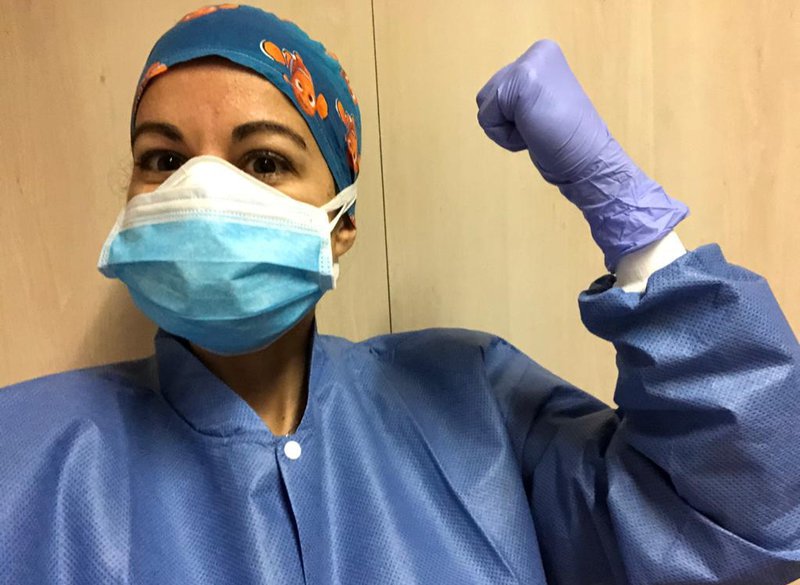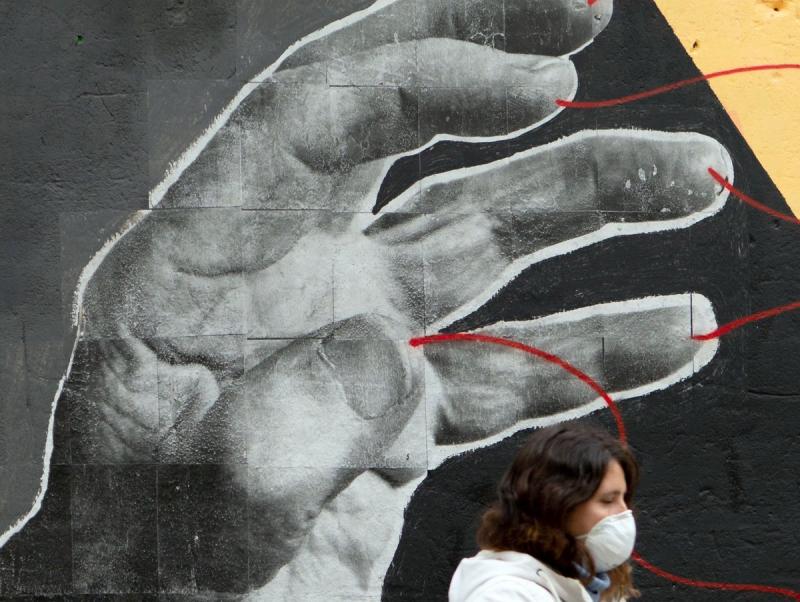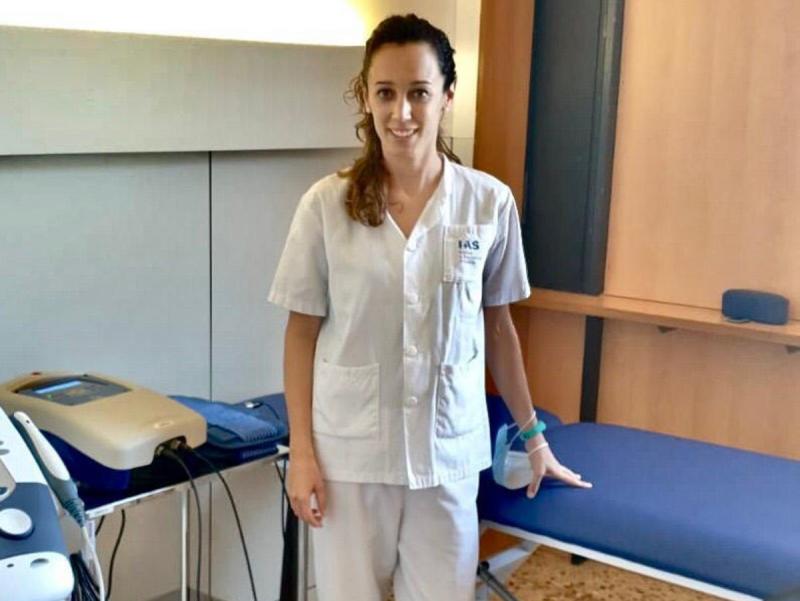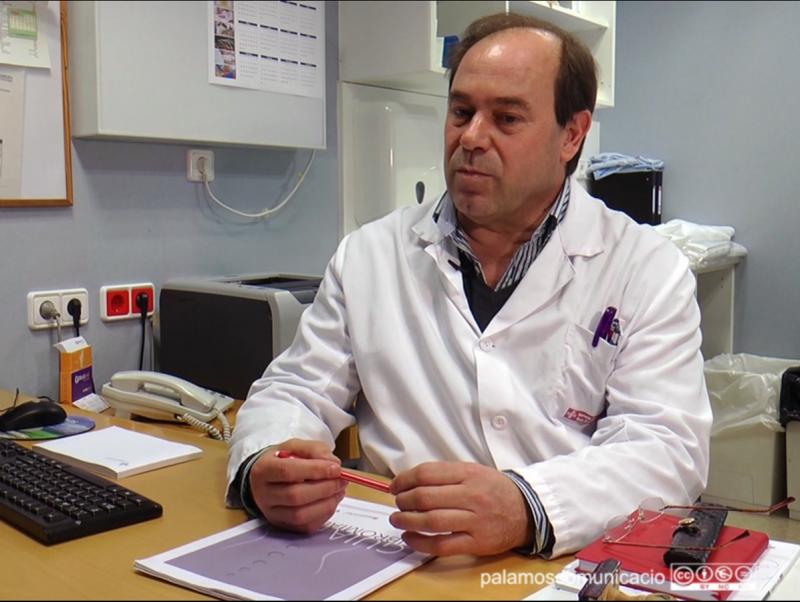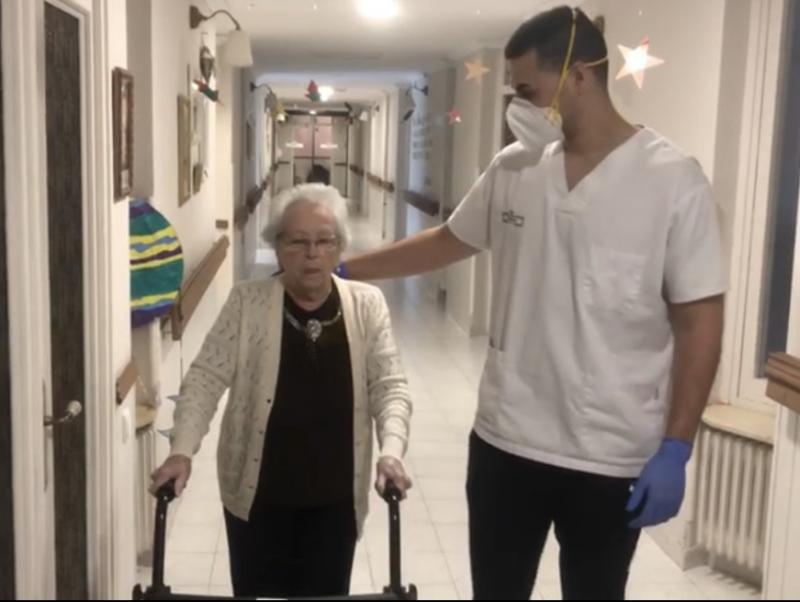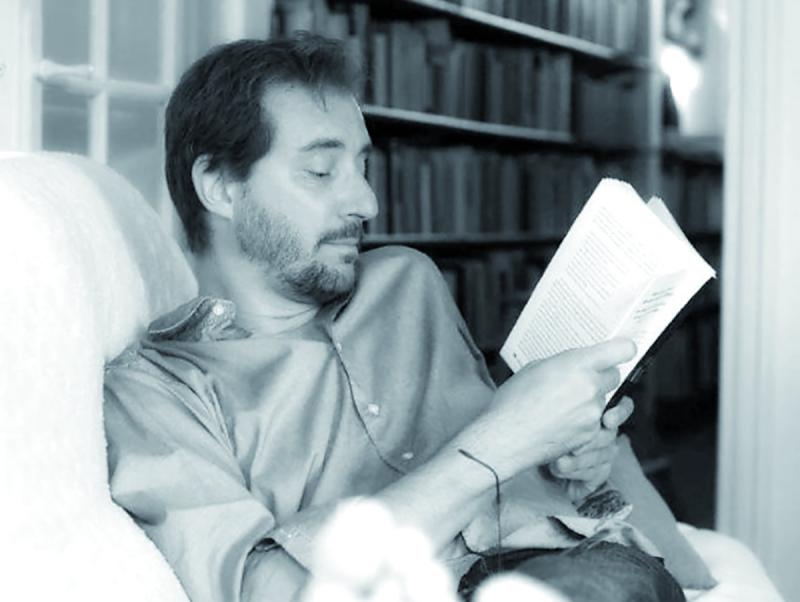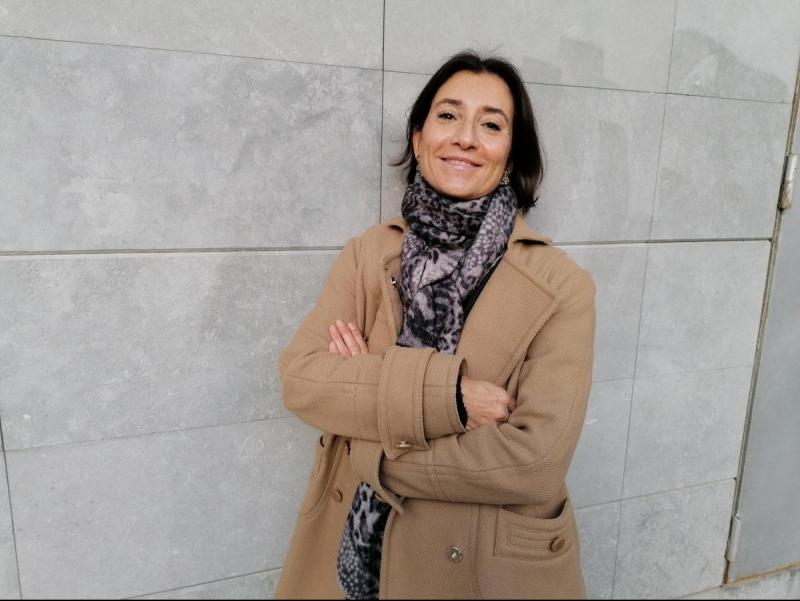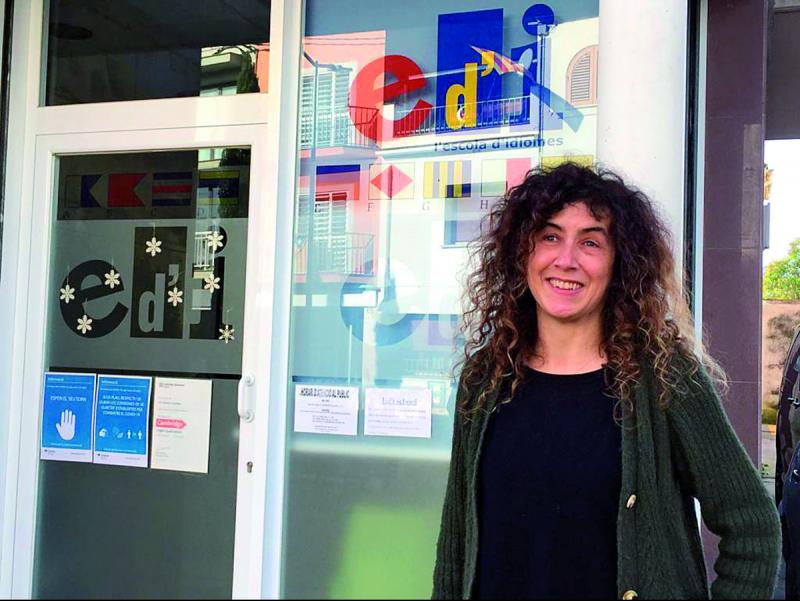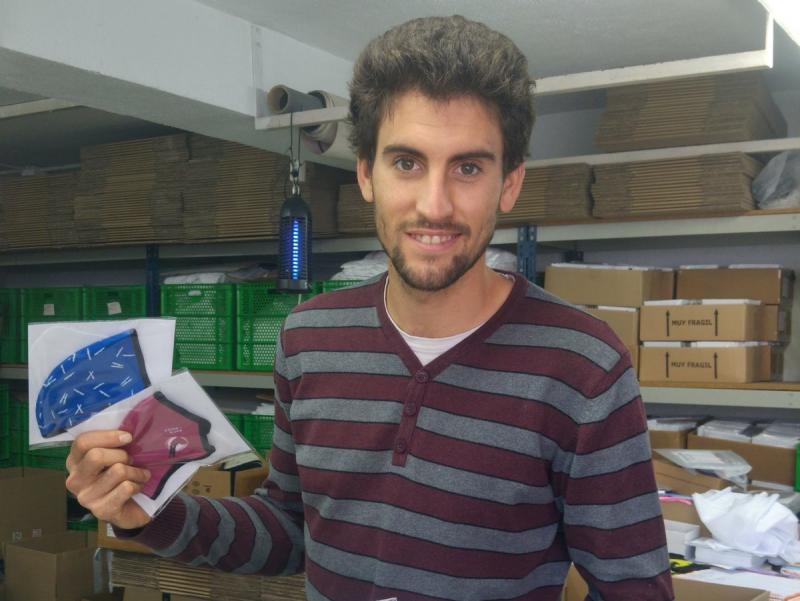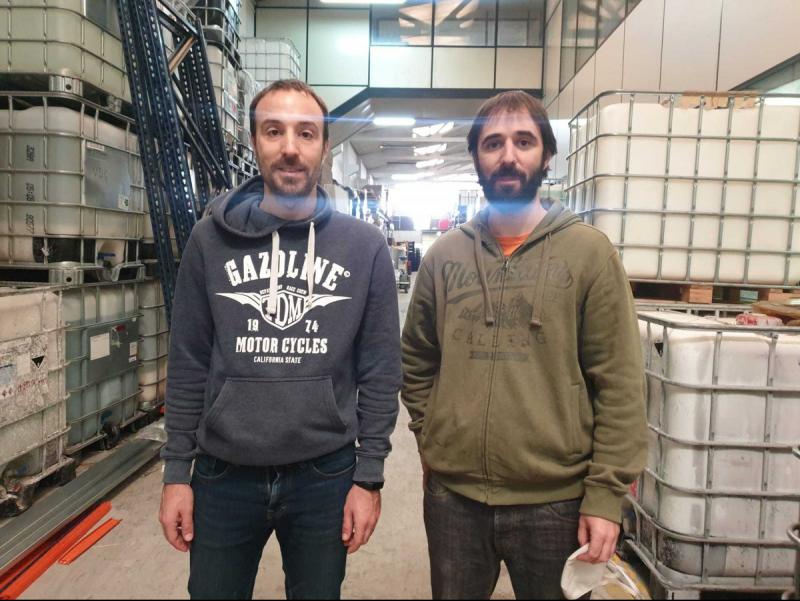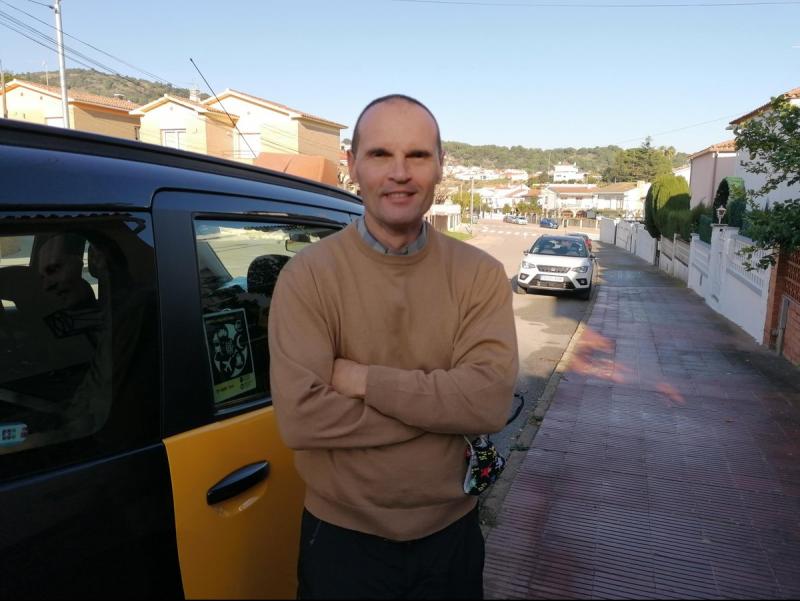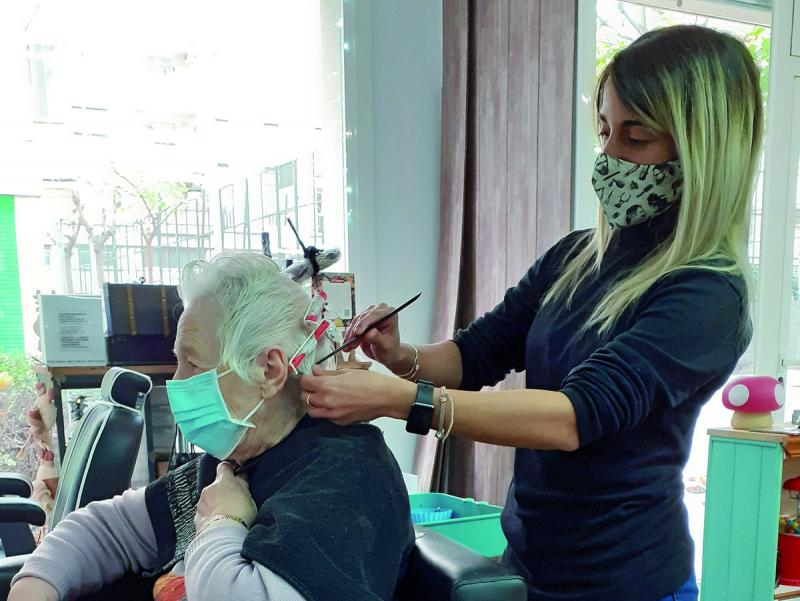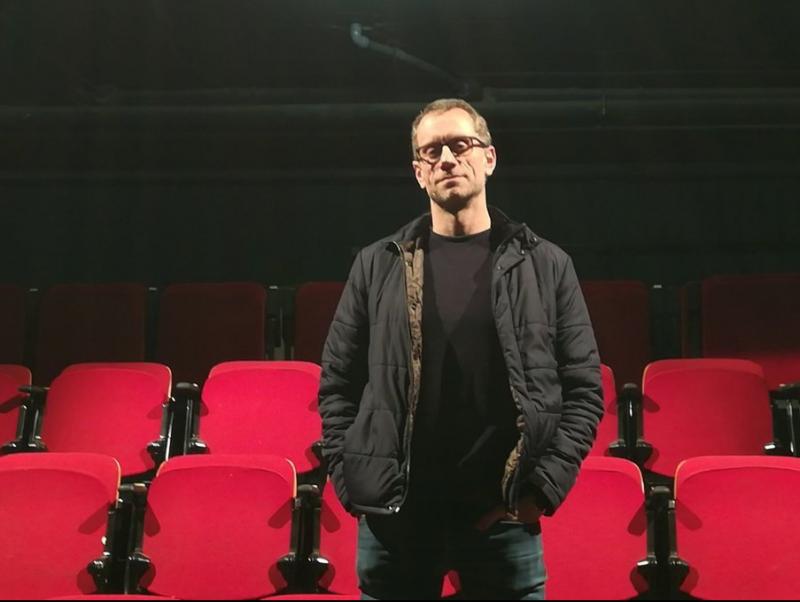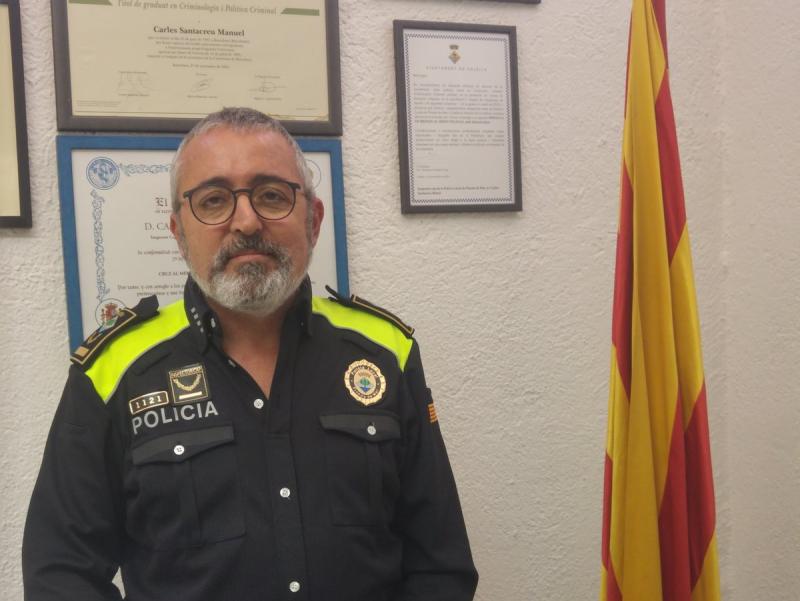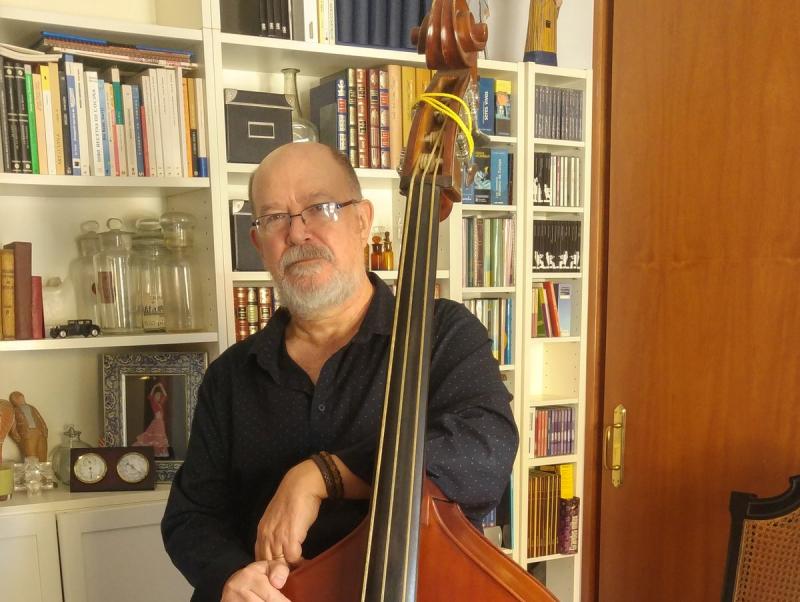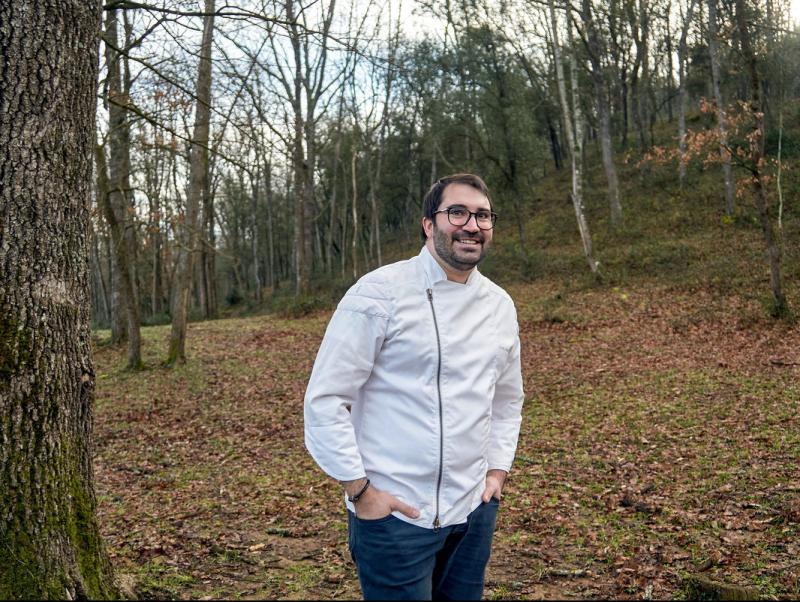Mertixell Riba
ICU NURSE
“We were overwhelmed and didn’t even have enough material”
THE HARDEST THING “You take the hand of someone you barely know to try to make up for the lack of their family, even though that is irreplaceable”
“We know almost nothing about this disease. The makeshift beds in the ICU were filling up and we were short of assisted breathing apparatus. We were running out of medication and had to improvise new formulas, making mixtures proposed by the anesthetists. I’d never experienced a situation like it. The more veteran nurses also told us that what we were experiencing was not comparable to any previous situation. No more people could fit in the morgue. The bags of belongings of the dead were piled up because no one could come and retrieve them. At home, you slept exhausted, not because it was easy to disconnect from the day-to-day life of the hospital.”
These are the words of Meritxell Riba, a 37-year-old nurse who joined the Intensive Care Unit of the Sagrat Cor University Hospital in March to reinforce the service. She previously worked in an aesthetic surgical practice based in the same hospital building. When the pandemic broke out, she offered to join the hospital’s medical staff. An extreme, unprecedented situation was foreseen, but the full gravity had not yet been appreciated. “I signed a one-and-a-half month contract because it was very difficult to imagine what was coming our way,” she recalls. Far from giving up this work, she has since decided to continue fighting on the frontline against the virus.
“The worst time was the first phase,” she recalls, “because we were overwhelmed everywhere, and we didn’t even have enough material to protect ourselves. The ICU was always full and people were dying at the door of the hospital because there was no place to put them. The medical staff gave it their all, but the resources were insufficient. It was impossible to be prepared in advance because no one could have expected a pandemic of this magnitude,” she says.
This nurse from Badalona continues to talk about “collapse in the hospital” but quickly points out that, fortunately, now “the situation is not comparable to the first wave, and we hope to never go back to that.” Riba has seen people of very different ages die as a result of Covid-19, from people in their thirties to those over eighty. And she has seen them die alone, without the company of their loved ones. “It’s a terrible experience. You take the hand of someone you barely know to try to make up for the lack of their family, even though that is irreplaceable,” she explains, visibly affected but aware that the medical staff is playing a key role in this crisis. And their example of resistance continues, even though there are many people who still suffer consequences from the difficulty of the experience they have been through. “Even now we discuss what those first weeks were like and we still can’t believe it,” she says.
But does the ICU nurse think that any positive conclusions can be drawn from such a situation? Meritxell is very clear: “Oh yes. The solidarity and team spirit that everyone in the hospital has shown. We’re a team and we all do our very best. That’s the best interpretation I can give,” she says.
covid stories

